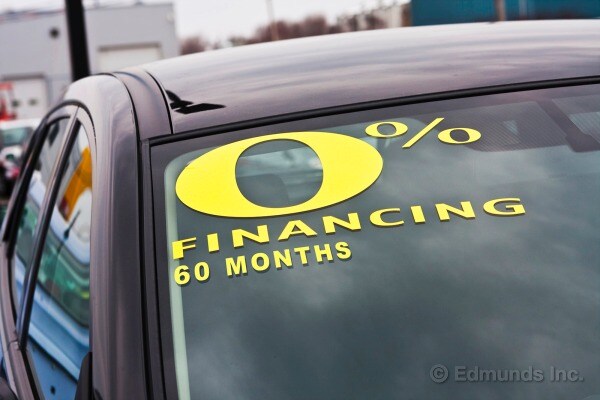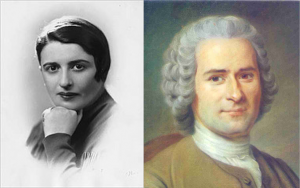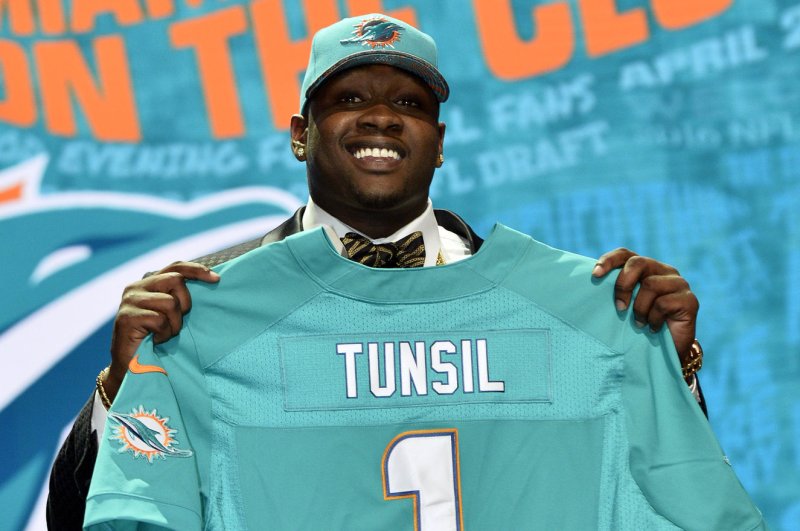It happe ned again this weekend. I guess the media never heard of “Occam’s Razor,” the problem solving principle which suggests, given a number of hypotheses, the one that requires the least assumptions is most preferable. In more modern terminology, it is much like the acronym KISS or “keep it simple stupid.”
ned again this weekend. I guess the media never heard of “Occam’s Razor,” the problem solving principle which suggests, given a number of hypotheses, the one that requires the least assumptions is most preferable. In more modern terminology, it is much like the acronym KISS or “keep it simple stupid.”
Yesterday, CNN reported on the sudden emergence of a 1991 interview between a “publicist” for Donald Trump and People Magazine writer Sue Carswell. From the tape and transcripts of the interview, it is fairly certain Trump was using the pseudonym John Miller to brag about himself. At first, everyone assumed Carswell or People Magazine had released the tape. However, she claims that she has the only copy of the tape and has never shared it. On CNN, Carswell speculated that Trump may have also recorded the conversation and was responsible for its release.
The CNN reporter then asks Carswell, “Why do you think Trump or his people would do that?” Did you really need to ask? Just watch your own broadcasts. For the last 48 hours, CNN and other news outlets had focused on Trump’s unwillingness to release his tax returns. Newspapers and his critics (e.g. 2012 Republican nominee Mitt Romney) peppered the presumptive nominee about what he might be hiding. Trump was being trolled on Twitter with the hashtag “#weakdonald.”
If I were Trump’s campaign manager, I would be polling to see if this was the “last straw” for many Republicans and, more importantly, independents. Could my candidate, who constantly reminds us he tells it like it is, weather the hypocrisy of not applying this adage to himself? I would have two choices. The most obvious one is release the returns. This would either quiet the critics, or as some have suggested, confirm charges that Trump overstates his net worth, is less charitable than he claims and/or pays little if any taxes. As campaign manager, do I want to take that risk? Probably not.
Say what you will about Trump, he and his team are masters at manipulating the media. Therefore, the campaign team’s second choice is to change the narrative. And that is what they did. They offered a more succulent piece of red meat to the media and the critics. A tape in which Trump lauds his own greatness disguised as a publicist. The modus operandus of a true narcissist. But everyone already knows that. One more piece of evidence to confirm something about which Trump enthusiasts and potential supporters have been exposed many times and don’t seem to care.
Look at the headlines over the last 72 hours in the Washington Post which broke the story on Friday. At the end of the week, everything was about Trump’s tax returns. This morning’s Sunday edition is about the tape. No story about tax returns. No op-eds about Trump’s lack of transparency. The Trump campaign successfully pulled the entree off the table and replaced it with dessert.
There is one more question. Why the Washington Post? Why not the New York Times, Trump’s hometown paper of record? Just this week, Trump re-opened his Twitter attack on Post owner and Amazon CEO Jeff Bezos, claiming the Post was anti-Trump because Bezos is afraid Amazon will be charged with anti-trust violations by a Trump Department of Justice. What is more satisfying than using a hated adversary’s asset as a prop for his reality show?
For those of you who think the purpose of this post is to criticize Trump, you are wrong. Each of you needs to assess the Trump candidacy on your own. I personally don’t agree with most of what Trump offers, but as they say, a broken clock is right twice a day. He is right when he chastises the media and calls them a disgrace. However, I guess Trump and I reach that conclusion from different perspectives.
Trump is not the primary villain in this melodramatic magic show which turned “taxes” into “tape.” He is only taking advantage of an audience that falls for his slight of hand and is afraid to ask how it is done.
For what it’s worth.
Dr. ESP
 How many times have you heard a politician say, “Government needs to be run more like a business”? Unfortunately, every time the public sector has a chance to do exactly that, those same politicians suddenly have a change of heart.
How many times have you heard a politician say, “Government needs to be run more like a business”? Unfortunately, every time the public sector has a chance to do exactly that, those same politicians suddenly have a change of heart.
 ned again this weekend. I guess the media never heard of “Occam’s Razor,” the problem solving principle which suggests, given a number of hypotheses, the one that requires the least assumptions is most preferable. In more modern terminology, it is much like the acronym KISS or “keep it simple stupid.”
ned again this weekend. I guess the media never heard of “Occam’s Razor,” the problem solving principle which suggests, given a number of hypotheses, the one that requires the least assumptions is most preferable. In more modern terminology, it is much like the acronym KISS or “keep it simple stupid.” rative was dominated by the release on social media of two stories about Ole Miss standout Laremy Tunsil. Minutes before the draft officially commenced, a tweet of Tunsil smoking weed surfaced on the internet. Later that evening, an Instagram post included text messages in which Tunsil asks for money first to pay his rent and second to help his mother with her utility bills.
rative was dominated by the release on social media of two stories about Ole Miss standout Laremy Tunsil. Minutes before the draft officially commenced, a tweet of Tunsil smoking weed surfaced on the internet. Later that evening, an Instagram post included text messages in which Tunsil asks for money first to pay his rent and second to help his mother with her utility bills.